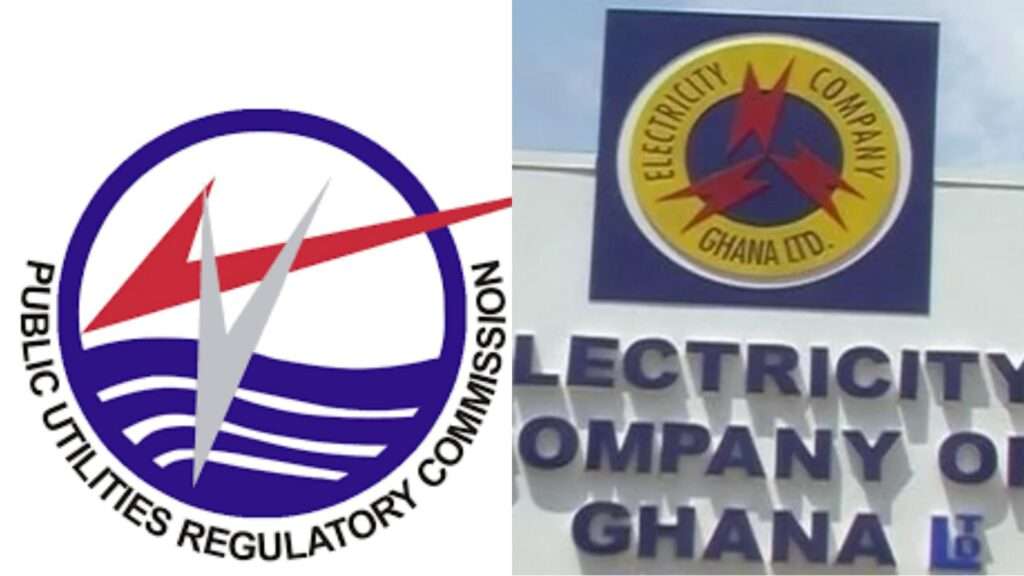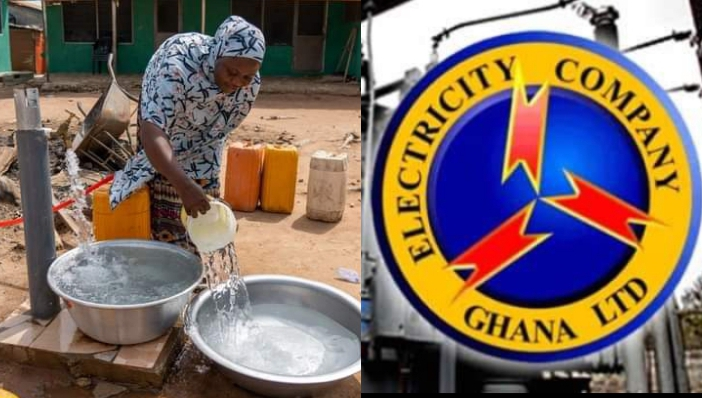Kay Codjoe, market researcher and a volunteer associate at IMANI Africa, has sounded the alarm over Ghana’s spiraling utility tariffs, describing the steep hikes as a painful consequence of years of political indulgence, corruption, and mismanagement.
According to Codjoe, the country has finally reached a breaking point where decades of reckless decisions are coming back to haunt both government and citizens.
He pointed to staggering proposals from Ghana’s major utility companies: the Electricity Company of Ghana (ECG) seeking a 225% increase in distribution charges, Ghana Water Company Limited (GWCL) pushing for a 280% hike, Ghana Gas demanding 91%, and the Volta River Authority (VRA) requesting 59%.
“Even our streetlights are demanding their own levy. And the ordinary citizen is expected to foot the tab. But this is not just about percentages on a tariff sheet. It is about people. It is about history repeating itself, where yesterday’s political indulgence writes tomorrow’s economic pain.
“For decades, Ghana’s utilities were treated as cash cows before elections. Contracts were inflated, maintenance postponed, and corruption normalized. Tariffs were kept artificially low, not out of compassion but to preserve an illusion of stability. The system bled, the cedi collapsed, debts piled high, and now creditors are knocking.”
Kay Codjoe
Water, in particular, has become a symbol of the crisis. Illegal mining, or galamsey, has poisoned rivers across Ghana, from Ankobra to Pra, leaving treatment plants overwhelmed with sludge.
“Mothers boil brown water that still carries the taste of chemicals,” Codjoe lamented. Pumps and equipment now wear out at alarming rates, driving up costs dramatically.

Meanwhile, the GWCL justified the proposed 280% tariff hike as essential to offset the rising costs of water treatment caused by severe pollution.
However, Codjoe criticized this move as highly unjust, pointing out that communities that have played no role in illegal mining or water contamination are now being forced to bear the financial burden.
In this situation, those responsible for polluting the rivers benefit, while innocent consumers are left to pay significantly more for clean water.
Electricity Sector In Disarray
Electricity costs mirror the same pattern of dysfunction. ECG continues to suffer from massive system losses, hovering between 27% and 32%, caused by theft, technical inefficiencies, and outdated infrastructure.
Although ECG has pledged to reduce these losses to 22% in the coming tariff cycle, the proposed 225% hike means that consumers will bear the brunt of the costs long before reforms take effect.
Kay Codjoe highlighted the irony of Ghana’s current situation, noting that a country that once aspired to export power is now struggling to provide reliable electricity for its own citizens.

“The sins of political interference, reckless borrowing, and deferred investment are not punished in the boardroom. They are punished in our living rooms when the light bill arrives.”
Kay Codjoe
The same dysfunction is evident in Ghana Gas, which is requesting a 91% increase, moving its tariff from $1.10 to $2.10 per unit of fuel.
Codjoe revealed that many of these costs stem from opaque contracts signed in secrecy, enriching a few elites while leaving the wider population to suffer.
Instead of renegotiating these deals, successive governments have simply passed the costs on to households already battling shrinking incomes.
Failed Reforms Amid Souring Utility Tariffs
Even the Volta River Authority, once the symbol of Ghana’s energy independence through the Akosombo Dam, now pleads for a 59% increase just to keep its turbines running.
Kay Codjoe pointed to a series of failed reforms and scandals that have plagued the sector in recent years.
The Cash Waterfall Mechanism, introduced to streamline payments across the power sector, was never consistently applied and became a source of disputes rather than solutions.

The relocation of the AMERI plant to Kumasi, with costs estimated between $35 million and $71 million, sparked controversy over pricing and necessity.
The PDS concession, intended to reform electricity distribution, collapsed in scandal, costing Ghana $190 million in lost Millennium Challenge funds.
“The last eight years were squandered,” Codjoe stated, emphasizing that these failures have compounded the financial strain now being transferred to ordinary Ghanaians.
Citizens Carry The Weight Of Corruption
Accordingly, Codjoe described a troubling reality in which those responsible for the nation’s utility crisis remain unaccountable, while ordinary citizens bear the financial burden.
He explained that the consequences do not fall on the officials who signed reckless contracts, the executives who oversaw massive losses, or the politicians who ignored the destruction of water bodies, but instead on everyday Ghanaians struggling to make ends meet.
“It finds the grandmother selling tomatoes, who must keep her fridge on. It finds the father stretching his last cedi between school fees and the light bill.”
Kay Codjoe

He urged the current government to break this cycle by reducing inefficiencies, addressing technical losses, recovering stolen funds, holding polluters accountable, and renegotiating exploitative contracts. “Yesterday’s evils now haunt today’s bills. But tomorrow does not have to be their shadow,” he added.
Meanwhile, Franklin Cudjoe, President of IMANI Africa, echoed Codjoe’s concerns and emphasized the urgent need for reform.
He criticized the former NPP administration for mismanaging resources and failing to implement crucial measures like the cash waterfall mechanism, which was designed to curb waste and theft.
Instead of prioritizing efficiency and accountability, he noted, the government chose to spend $45 million relocating power plants from Accra to Kumasi.
Gas deals were nothing but plunderous scams!” he said, pointing to the PDS scandal and the disastrous debt exchange program that stripped pensioners of their savings.
Codjoe concluded by reminding Ghanaians that utility tariffs are not just about cost recovery but about justice. “When justice is delayed, it is always the poor who pay the interest,” he warned.
As citizens brace for higher bills, the question remains whether the government will confront the root causes of the crisis or continue a cycle where the powerless always bear the heaviest burden.
READ ALSO: Chamber of Mines Calls for Inclusive Approach in Review of Mining Law



















